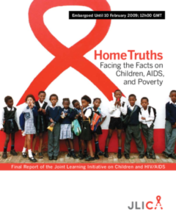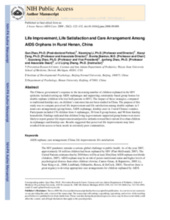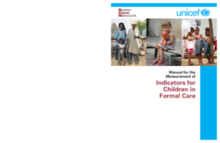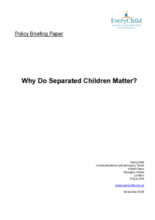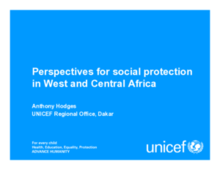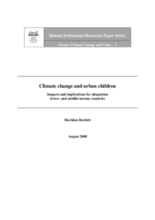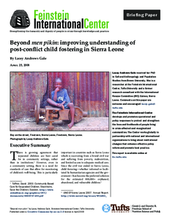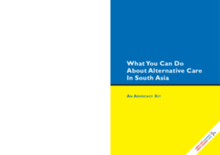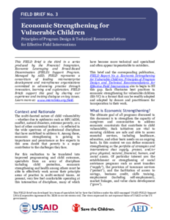Displaying 431 - 440 of 501
Evaluates a number of fundamental misperceptions that have undermined the global response to children affected by the epidemic, and sets out evidence on how to better respond to their needs.
This study aims to compare perceived life improvement and life satisfaction among double orphans in 3 main care arrangements (group home, AIDS orphanage, kinship care) in 2 rural Chinese counties.
Manual to assist countries in strengthening their information system around children in formal care through data collection around 15 global indicators
Evaluation of the need for increased understanding and inclusive responses to highly marginalized and separated children.
Assesses constraints and opportunities for social protection programming regionally with particular consideration for child sensitive social protection.
This paper discusses the probable impacts for children of different ages from the increasing risk of storms, flooding, landslides, heat waves, drought and water supply constraints that climate change is likely to bring to most urban centres in Africa, Asia and Latin America.
Examines the challenges posed in monitoring and ensuring child protection in informal and formal fostering in post-conflict areas.
On 13 February 2008 Prime Minister Kevin Rudd made a formal apology to Australia’s Indigenous peoples, particularly to the Stolen Generations whose lives had been blighted by past government policies of forced child removal and Indigenous assimilation.
Provides insight into the situation of children outside parental care in South Asia, gaps in legislation, capacity, and services, with reference to national and international legal instruments.
A brief illustration of ten economic strengthening tools that can be adapted to address child vulnerability due to HIV/AIDS, conflict, natural disaster, extreme poverty, or other contexts.

